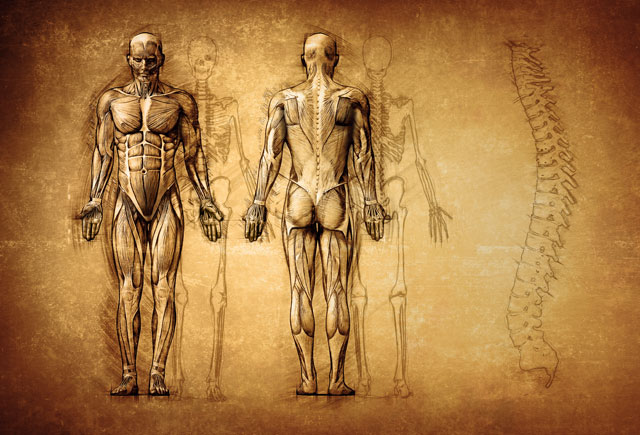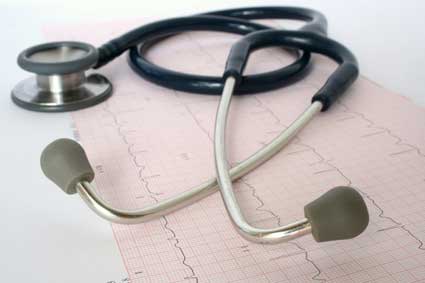Section 1. Anorexia
Anorexia is by far the most publicized eating disorder and for good reason. Anorexia is a psychological condition in which the person chronically manipulates their food intake to achieve or maintain an "ideal" weight or image, which is much lower than the healthy norm. This is often achieved by deliberately and continuously eating only a specific amount or certain types of foods daily. In other cases, the person may eat close to normally, but cause themselves to vomit after every meal to maintain their perceived image of health and beauty.
Anorexia is more of an emotional and mental condition than a physical one and affects more than eight million people in the U.S, the majority of them women. In fact, studies show that approximately 1 in every 200 women suffers from this condition, with the average age of diagnosis being between 9 and 12. This is just the reported data and many health professionals feel the number is in fact much higher.
Signs of Anorexia
It may initially be hard to detect that someone has an eating disorder. However, over time specific symptoms and patterns usually occur. Below are some of the warning signs that a person has developed an unhealthy relationship with food.
- Obsessive fear of gaining weight.
- Inaccurate self image.
- Discards or hides food.
- Likes to see others eat, but will refuse to eat themselves.
- Eats, but purges immediately afterwards.
- Uses laxatives, diet pills, and vomiting to reduce appetite and expel food from the body.
- Exercising fanatically, although often already trim.
Some of the physical signs of Anorexia are:
- Rapid and noticeable weight loss.
- Absence of three or more menstrual cycles because of hormonal disruption due to malnourishment.
- Hair loss from nutritional deficiency.
- Depression and isolation.
- Dental erosion.
- Neurological problems.
- Organ damage.
~Check In: Section 1.
Is anorexia something that is talked about by your school health administrators? What about amongst the students?
Have any of your friends ever shown any of the symptoms above?
Media Pressure. Many young girls and women fall into the trap of striving to look like the latest star or runway model. What they don't understand is that most women do not look like that normally and that the models often follow a very strict and often unhealthy diet to maintain their appearance. So in reality, most women have to starve and torture themselves to get a waif thin figure; this is not what nature intended.
It is important to understand that the media projects messages that support its agenda of promoting a specific norm or product. Often, this occurs by making the viewer feel inadequate and in need of the solution provided by the advertiser to become prettier, slimmer, or more likable. By understanding that the role of advertising is to sell more product and increase profits, by any means necessary, you have a better chance at not succumbing to their messages.
Psychological Disorders are also linked to the development of anorexia and other eating disorders. It has been observed that a large number of women with anorexia also suffer from obsessive-compulsive disorder. Because of this, they fixate on food and may only eat very specific amounts, types, or colors of food. Also, some with anorexia suffer from a desire to reach perfection, at all costs. They feel that if they were just thin enough and pretty enough and perfect enough that all of their problems would disappear. They may view disappointing events as a sign to increase their efforts to control their food intake and as a result their body.
For some with anorexia, a desire for control can also prompt the development of the disease. If an individual feels that parts of their life or their relationships are spinning out of control, they may use obsessive eating patterns as a way to main control over at least one aspect of their life. It can also be used as a passive aggressive means to fight back at a person or situation.
Substance Abuse can also contribute to developing anorexia or another eating disorder. Research has shown that some individuals have an addictive susceptibility built into their genes, meaning that they are more likely to fall into alcohol or drug addiction than someone without this gene. An eating disorder such as anorexia can result from this same gene as well. Surveys have shown that in females who have problems with drugs and alcohol, many of them have issues with eating disorders as well.
Physical or Sexual Abuse can also prompt an eating disorder. In a study published in the British Journal of Psychiatry, it was shown that that girls who experience sexual abuse prior to age 16, were twice as likely to develop an eating disorder later. This can be attributed to a need to exercise control, when conversely, at the time of the abuse, they were unable to control their circumstances. On the other hand, women who recall their childhood as happy and non-threatening possessed a better overall body image and were less likely to obsess over weight gain during their lives, including during pregnancy.
~Check In: Section 1.
Do you think that media messages influences the way that you and your peers behave and what you think is cool or desirable? If so, how much?
Section 2. Other Eating Disorders
Anorexia may be the most well known eating disorder, but there are others that are just as detrimental to your health. Below are the most common eating disorders that people suffer from other than anorexia.
Bulimia is another eating disorder which primarily affect women in their twenties and early thirties, whereas anorexia usually surfaces in the early to late teen years. The marked difference in patients with bulimia is that instead of trying every means to reduce their weight, bulimics instead experience uncontrolled binging episodes, in which they eat large amounts of food, usually of the unhealthiest sort. However, immediately after binging, the person feels overwhelming guilt and shame, causing them to purge (force themselves to vomit) in order to reverse what they have done. Unfortunately, they are usually pulled into another binge session and the cycle begins again.
Another difference between bulimia and anorexia is that a bulimic will maintain regular weight, but will often have discolored or rotted teeth because of continuous vomiting. Bulimics will also often suffer from stomach pain and constipation.
Some of the reasons for bulimia include experiencing trauma from a divorce or move to another location. The person seeks to fill the emotional pain or void with food, but of course it does not do the trick and often prompts additional feelings of remorse or self loathing. Other things that may prompt a binge are having a fixation on dieting, experiencing pressure to excel academically, or to perform in social settings.
Binge Eating is another eating disorder and is similar to Bulimia. With this condition, the person also experiences an uncontrollable urge to frequently consume large quantities of food, often to the point of making themselves ill. This is usually a means to deal with feelings of inadequacy or emotional or mental trauma. However, Binge Eating usually exacerbates those feelings causing an increase in self loathing and shame due to the inability to control their eating habits. The major difference between Binge Eating and other eating disorders such as Anorexia and Bulimia is that the sufferer usually does not resort to purging or using laxatives to remove excess food from the body.
It is critical to your overall health to maintain a healthy body image and relationship with food. This is why it is so important to seek treatment if you or someone you know is dealing with an eating disorder. However, it's important to remember that a large component of disordered eating consists of a psychological or emotional imbalance. In this deceptive state, the person feels that they are actually working in the best interest of their health and may even become defensive or violent at the suggestion of change or seeking help. In these cases, if a problem is recognized, family members and friends should try to get the person to a doctor, but the person must acknowledge their condition to actually begin to heal.
Treating Eating Disorders
Psychotherapy. A treatment for an eating disorder will be coordinated by a mental health professional that specializes in treating eating disorders. Part of the treatment will focus on uncovering the emotional and mental reasons why the person is battling with food. This may be done in a number of ways, including seeing a psychologist at regular intervals to engage in discussions about your life, school, career, and relationships in an effort to unearth the issues which are the true reason for the eating disorder.
In addition to individual sessions, the patient may also be prescribed group therapy, in which participants share stories and support with others who are struggling to conquer eating disorders. At some point, the counselor will likely want to involve the patient's family in a session to ensure that the patient is properly supported during their recovery and to resolve any family issues that could have been a contributing factor.
Medication. As mentioned previously, many people with eating disorders suffer from depression, anxiety, or other mental or emotional imbalances. Often, the doctor will prescribe an antidepressant to allow the patient's mood to level out while addressing underlying triggers of the illness. It is important however, that the patient is closely monitored while on medication, as it can cause adverse effects in some people. In fact, some drugs, such as Prozac have even been seen to cause violent thoughts and suicidal behavior in children. Other psychiatric drugs may interfere with sexual arousal.
Nutrition counseling. This is the third aspect of treating eating disorders. Because of the ongoing restriction of calories that some have endured, or by only eating specific foods, many people with eating disorders are extremely nutrient deficient. A registered nutrition professional will assess the patient and describe any supplements that are required to rebalance the vitamins and minerals in the body. In addition, they will likely supply meal plans to help the patient regain weight, if necessary, and work with them to understand how to eat in a balanced manner to support their overall health.






























